Be warned, you have great exposure to an assault on your personal economics, and potentially on your license to practice medicine from medical record audits. Health plans; payers of all kinds have learned the potential for the recovery of thousands of dollars by challenging medical record documentation and the justification of the level of service for the diagnosis provided. You must “audit proof” your records to withstand this assault.
Medicare reports that for each dollar in audit expenses, they recover $4 in disputing a physician’s medical record documentation in support of coding and challenging the level of service for the diagnosis listed. This is not lost on the commercial payers, who have found that they cannot only recover money from paid claims but also creates a chilling effect on future claims coding, resulting in the unnecessary down-coding of physician claims, costing thousands.
A request for medical records or a request to visit and review charts could become a serious intrusion into your practice and could put your license to practice in jeopardy.
Is it significant?
Treating a request for medical records access in a cavalier manner can only bring you pain and suffering. While some audits of charts are routine reviews performed by insurance companies on a sampling basis, others are the focused reviews of what you do and what you billed. Audits that ask for number charts for review, without specifying the charts are generally randomized reviews. However, audits that request specific patient names are generally more focused and have usually been prompted.
What stimulates an audit of your charts?
- Routine audits – health plans such as HMOs, conduct routine audits as part of an obligation to perform quality assurance reviews. Insurance companies generally do not conduct routine reviews although they can request specific records related to specific claims.
- Prompted Audits – something has occurred to raise your practice to a higher level of interest. Unfortunately, you generally do not know what has prompted this interest. However, prompted audits are requests for medical records where there is a specific focus or concern. What prompts audit may include:
A billing pattern identified by data analysis. This is increasing as computer programs now compare your coding pattern to that of your peers for the frequency of certain codes and diagnoses. A higher frequency of 99214 or 99215 will often trigger a challenge to your billing.
- A specific patient complaint of a certain magnitude a or series of complaints from patients
- Complaints from the staff of the plan. This could be from the field representatives who visit physician offices or staff at the plan call center
- Quality concerns raised by the patient or medical management staff of the plan
- Patient-reported a discrepancy between your billing and what services or their perception of services provided, as well as a discrepancy between the name of the physician who provided the services, and the name of the physician on the bill as the rendering physician. (The physician who renders the care must be identified as such on the billing.)
BASIC REALITY
Many physicians believe that their records are being requested because they are “targeted” for complaining, giving too much care, or some other reason nefarious reason.
It does not matter what stimulated the request for records. The records must support the coding.
A request for medical records, an audit of your charts means someone will be looking at your medical records and the billings supported by those records. The chart review can result in action that is very detrimental to your practice, its economics, and even your license.
- Expanded review. While the initial chart review may have been based on a sampling, based upon the findings from that sampling everything could be expanded to include a broader representation of charts.
- Extrapolation. Extrapolation is the application of the economic impact of the disagreement with your billings vs. the charting over several years. If there is a suspicion of fraud in the insurance billing the argument can be made to extrapolate back up to seven years. For example, if the review shows that 10% of all billing have been up-coded then it is an extrapolated that 10% of all billing over several years have been up-coded. The economic consequences multiply dramatically. Medicare has long used and recognized extrapolation as a legitimate method of assessing damages from alleged up-coding. Commercial carriers follow this model.
- OIG notification of suspected insurance fraud, as well as notification to the state regulatory authorities of a similar suspicion. In New York State the reporting is made to the Department of Insurance, Insurance Fraud Bureau. The office of the Inspector General of Medicare, as well as state regulatory authorities, may choose to pursue such a notice and conduct their own investigation independent of the commercial carrier. These investigations carry a high level of risk and potential liability.
Mistake vs. Fraud
Health plans are required under both federal and state statutes to report all suspicion of insurance fraud. Reporting suspicion is not making that determination and to do so does not subject the carrier to a liability for slander or defamation.
The New York State Insurance Fraud Prevention Act specifically provides that insurers and health maintenance organizations that have reason to believe that “an insurance transaction may be fraudulent, or knowledge that the fraudulent insurance transaction is about to take place, or has taken place shall, within 30 days” make a report to the New York Insurance Fraud Bureau. (N.Y. Ins. Law s405.) A fraudulent health care Insurance act is committed when any person knowingly and with intent to defraud presents, or causes to be presented, any information as part of an enrollment application or claim for payment which he knows to (i) contain materially false information concerning any material fact thereto; or (ii) conceals, for the purpose of misleading, information containing any fact material thereto. N.Y. Penal Law s176.05 (2)
Federal regulations contain similar reporting obligations.
While there’s an obligation to report fraud there’s always the difference between a fraudulent act and billing mistake. Regulators and prosecutors have confirmed that they will not attempt to prosecute physicians and other providers who make innocent mistakes in billing. However, a pattern of committing the same the billing mistake repeatedly can convert that mistake into a fraudulent act.
Reckless Disregard:
Physicians and other health professionals can be and have been prosecuted for fraudulent billing if the prosecutor finds and is able to establish that the provider recklessly disregarded the requirements of the building statutes and regulations. “Reckless disregard” generally means that the billing provider did not pay attention to the billing requirements, did not review the billing requirements and changes to requirements, did not take necessary action to sure that billing staff was properly trained, and did not take any action to review claims for accuracy and appropriateness.
The physician’s lack of knowledge of inappropriate and incorrect billing practices is not recognized as “an innocent mistake” if the provider’s lack of knowledge results from a reckless disregard of the building standards and requirements. Similarly, it is not “an innocent mistake” if the provider willfully refuses to learn what is required.
Top Five 1st Providers Choice EHR Software




More Stories
The Future of Radiology Information System
How To Buy EHR Software in 6 Steps
Information security guide for small healthcare businesses